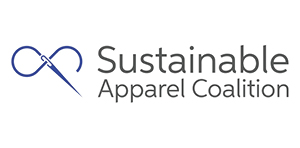
UMWELTVERANTWORTUNG
MITGLIEDSCHAFT SUSTAINABLE APPAREL COALITION

Seit 2016 ist ODLO Mitglied der Sustainable Apparel Coalition {SAC}, einer Multi-Stakeholder-Initiative der globalen Schuh- und Bekleidungsindustrie. Mit dieser Mitgliedschaft schließt sich ODLO mehr als 230 globalen Marken, Einzelhändlern und Herstellern sowie Regierungen, gemeinnützigen Organisationen und akademischen Institutionen an, die sich gemeinsam für die Verbesserung der Nachhaltigkeitsleistung entlang der Lieferkette einsetzen.
Der Higg-Index ist das Messinstrument der Gruppe für Nachhaltigkeit. Er umfasst Anlagen-, Marken- und Produktinstrumente, die quelloffen und indikatorbasiert sind. Der Higg-Index ermöglicht es Herstellern, Marken und Einzelhändlern, ihre Materialien, Produkte, Einrichtungen und Prozesse auf der Grundlage von Umwelt- und Produktdesignentscheidungen zu bewerten.
Mit der Einführung des Higg-Index wird die Lieferkette von ODLO sowie die Marke selbst anhand eines Branchen-Benchmarks bewertet, wodurch die Stärken und Schwächen der Unternehmensaktivitäten, die ODLO zu sinnvollen Verbesserungen befähigen, ganzheitlich aufgezeigt werden.
Für weitere Informationen über die Sustainable Apparel Coalition: www.apparelcoalition.org
UMWELT-MONITORING
Das in Zusammenarbeit mit Branchenführern entwickelte Higg Facility Environmental Module ist eine sehr effektive Nachhaltigkeitsbewertung, die sich auf die Ergebnisse einer Produktionsanlage konzentriert. Das Hauptaugenmerk liegt dabei auf der systematischen Herangehensweise einer Anlage in den Bereichen Umweltmanagement, Energie, Wasser & Abwasser, Luft, Abfall und Chemikalienmanagement. Wie im Abschnitt Nachhaltigkeit dargestellt, setzt sich ODLO klare Ziele, um die Umweltauswirkungen des Unternehmens zu reduzieren, unsere Partner in der Lieferkette spielen dabei eine Schlüsselrolle. Wir haben spezifische Ziele in Bezug auf erneuerbare Energien, Wassernutzung und Chemikalienmanagement festgelegt. Das Umweltmodul der Higg-Facility Environmental Module hilft uns bei der Erfassung von Daten in diesen Umweltbereichen, so dass wir z.B. sehen können, wie viel Wasser eine Produktionsanlage verbraucht, ob Abwasser vor Ort behandelt wird oder welche Art von Energie verwendet wird. Das Tool hilft uns dabei, Wirkungs-Hot-Spots zu identifizieren, in denen wir das größte Potenzial für Verbesserungen haben.
WELT DES TRANSPORTES
Wenn es um den ökologischen Fußabdruck eines Unternehmens geht, spielt die Logistik eine wichtige Rolle. Die Transportart hat einen großen Einfluss auf die Umwelt, aber es gibt auch viele andere Bereiche, mit denen wir uns befassen, von der Verpackung über das Materialrecycling bis hin zur Energienutzung in unserem eigenen Distributionszentrum in Brüggen, Deutschland.
TRANSPORTMETHODEN (WARENEINGANG 2019)
Land – 59% Seeweg – 33% Luft – 8%
NACHHALTIGKEIT BEI ODLO
SOZIALE VERANTWORTUNG PRODUKTVERANTWORTUNG NACHHALTIGKEIT STARTSEITE